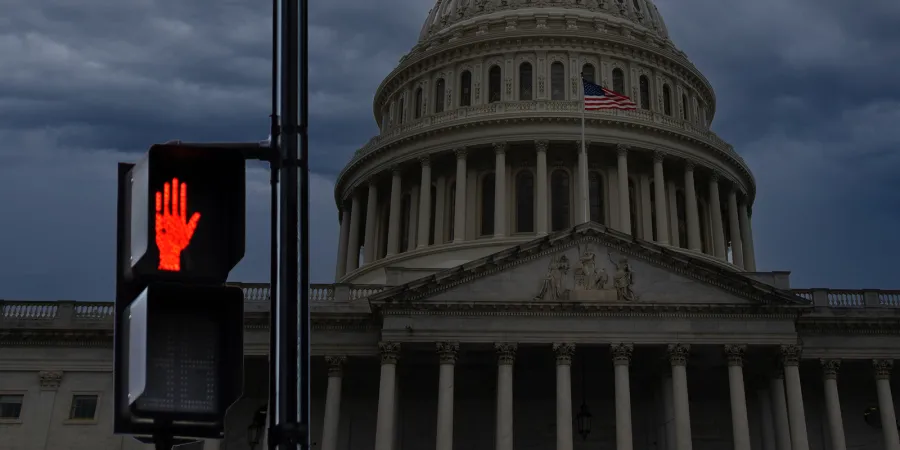As a government shutdown looms, AFSCME members voice alarm and frustration

For John Campion, a monitoring officer with AmeriCorps, the potential for a federal government shutdown beginning this month brings fear, insecurity and frustration.
Campion’s job as a monitoring officer for AmeriCorps is to ensure that taxpayer dollars are being spent properly. AmeriCorps, a federal agency of service and volunteerism, provides opportunities for Americans to build up their communities, in areas that range from education to health care and more.
Campion, a member of AFSCME Local 2027 (District Council 20), ensures that the grant recipients who use our tax dollars to operate their programs are doing so responsibly; that the volunteers who serve in those programs are working within AmeriCorps’ guidelines.
However, according to Campion, a government shutdown would jeopardize his work.
“For the shutdown period, I legally cannot work. So, whatever portfolio I have screeches to a halt,” he said in a recent interview. “We don’t have the capacity or the dollars to monitor everyone. Now you’re going to shut us down, with limited capacity? You’re further straining capacity. Every dollar lost is a dollar we need to ensure our grantees are operating within the law. We want to ensure taxpayers’ money is spent wisely.”
There’s a more personal aspect of a shutdown that worries Campion.
Campion has an 18-month-old toddler who attends day care. If a shutdown happened, and he isn’t receiving a paycheck, he worries about how he’ll pay for day care and other day-to-day needs. Campion has also begun to question the stability of his entire career.
“At one point in time, federal jobs were seen as the gold standard. You had to be the most qualified to get a federal job,” he said.
He invested in a master’s degree in public administration with the goal of using the skills he earned in graduate school throughout his career in federal service. If the government shuts down, agencies may be asked to operate with fewer dollars, and that means cutting jobs.
“So, it’s not just how do I make do without a paycheck. But also, ‘Will my position be funded?’”
Campion is not alone in his fears.
Jim Kabbara, who works for the Federal Aviation Administration (FAA) and serves as president of AFSCME Local 1653 (District Council 20), says a shutdown would badly hurt federal government workers.
“Contrary to public opinion, most federal employees live paycheck to paycheck,” he says. “So, a government shutdown would be a big deal to many of them — it would definitely have a financial impact on employees.”
But the impact on workers’ pocketbooks is only one downside of a possible shutdown.
Our overall economy could take a huge hit. Partial government shutdowns in 2018 and 2019 cost a total of $11 billion. A full government shutdown in 2013 cost as much as $24 billion.
Just as importantly, many services the government provides and programs it runs would be halted. Whether it’s the Food and Drug Administration (FDA), which keeps our food safe, or the National Institutes of Health (NIH), which conducts medical research and approves grants, or the Centers for Disease Control and Prevention (CDC), which monitors and helps prevent the spread of diseases, vital government services would grind to a halt. The list goes on.
Unless the House and the Senate pass a spending package to pay for federal programs and services, the government would shut down in two phases. As this article explains, “Veterans programs, transportation, housing, agriculture and energy departments are funded through Jan. 19, while funding for eight other appropriations bills, including defense, expires Feb. 2.”
Congressional leaders announced an agreement over the weekend on a funding plan. It remains to be seen if the plan has enough support to pass both chambers in time to avert a shutdown.
